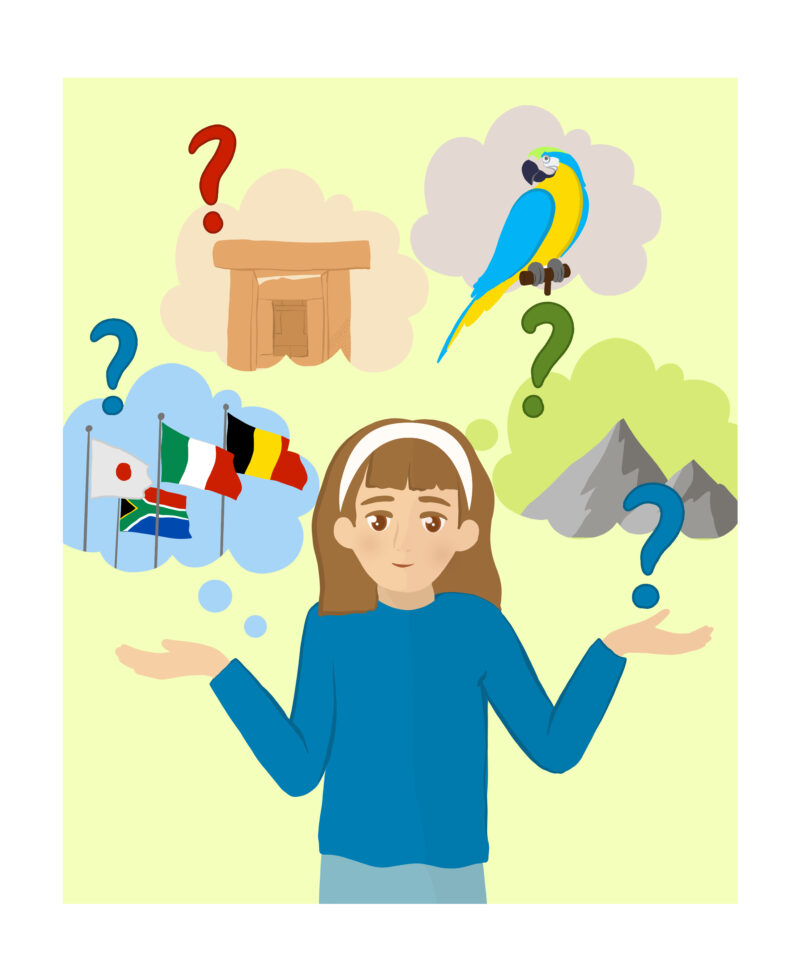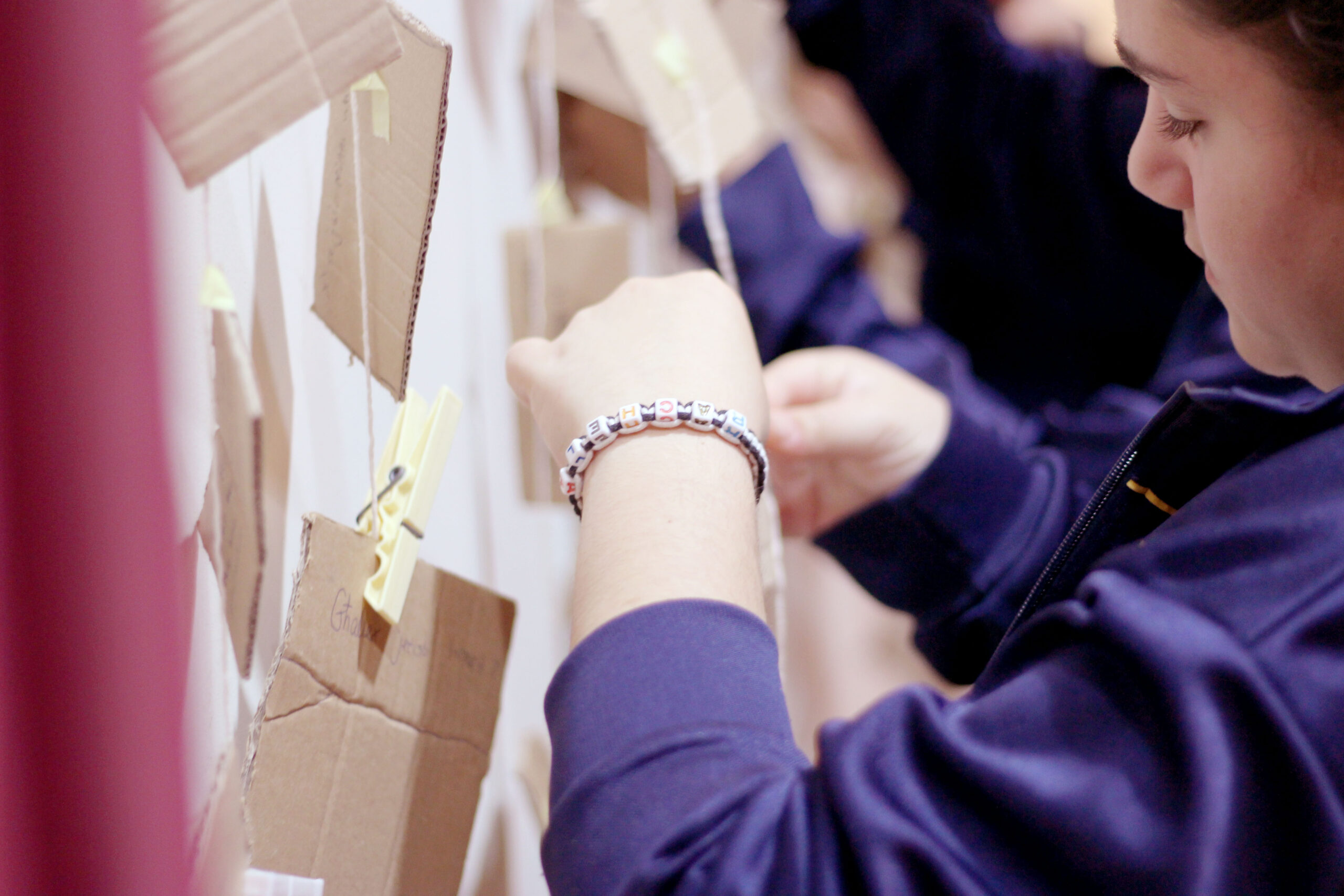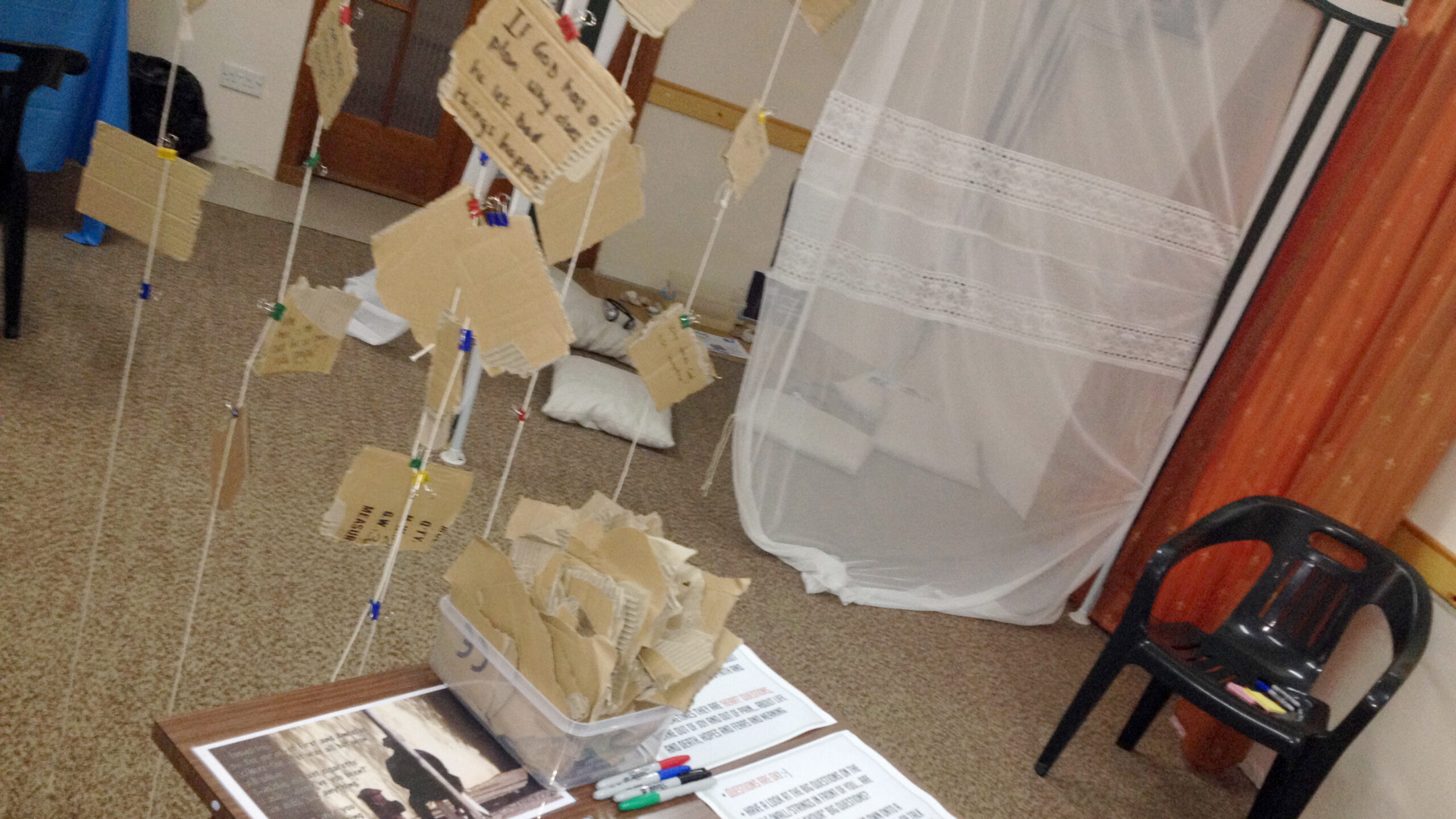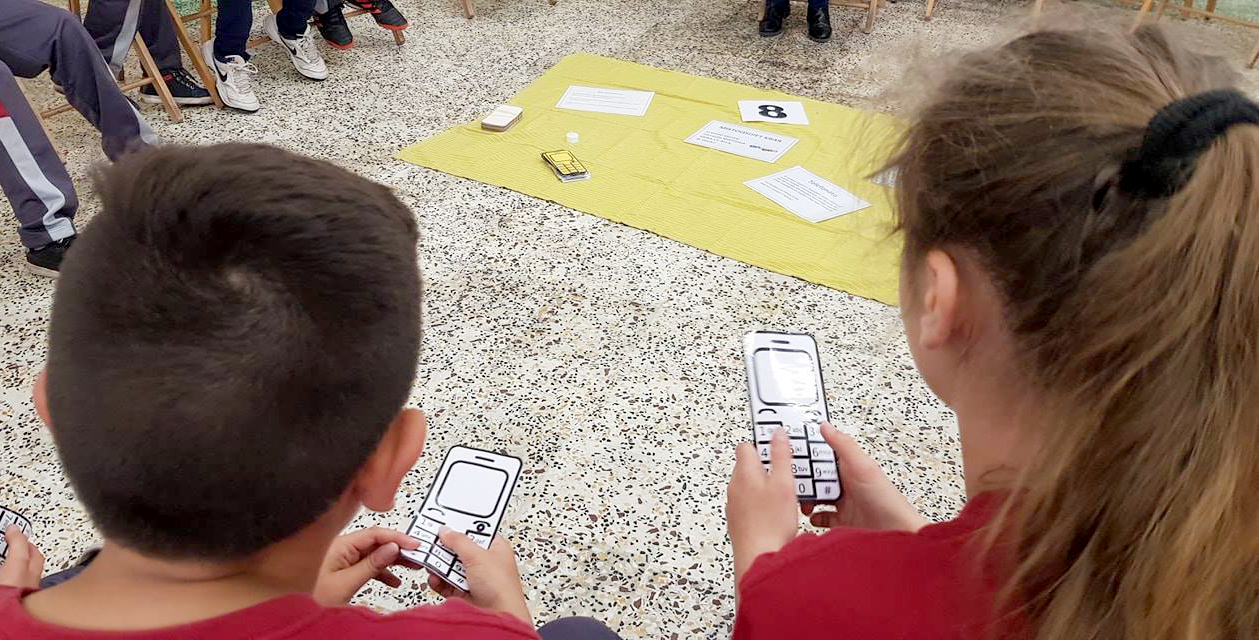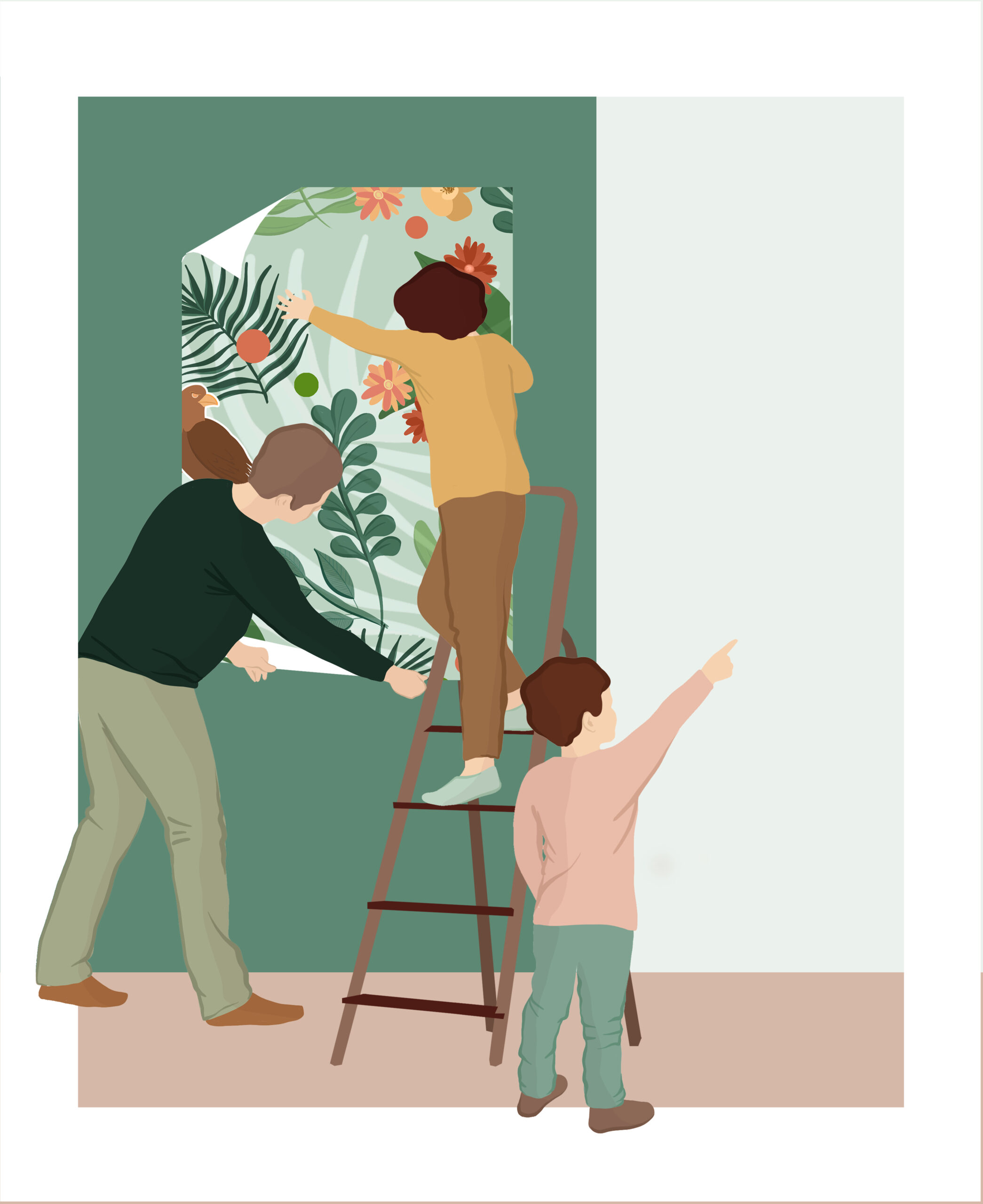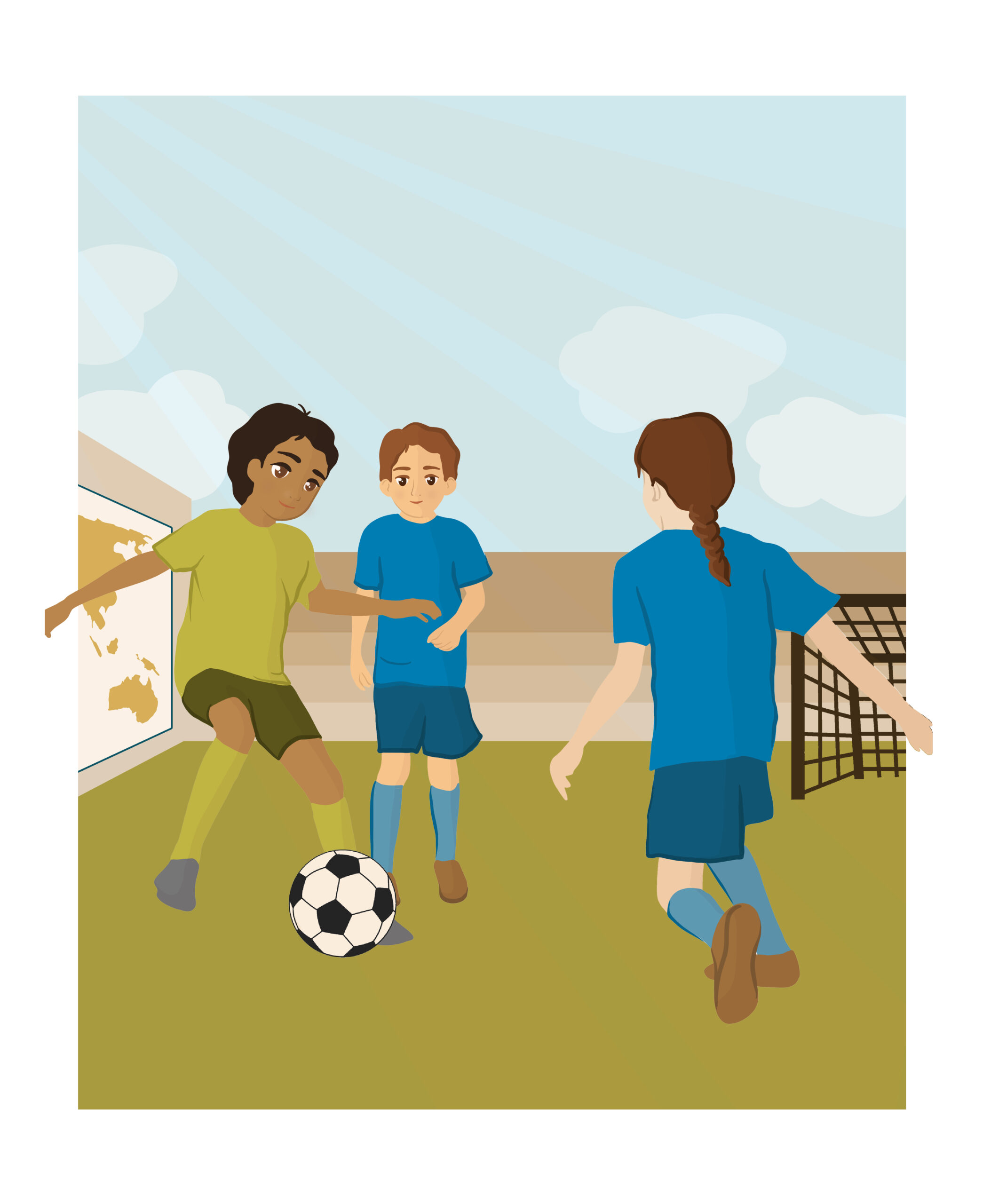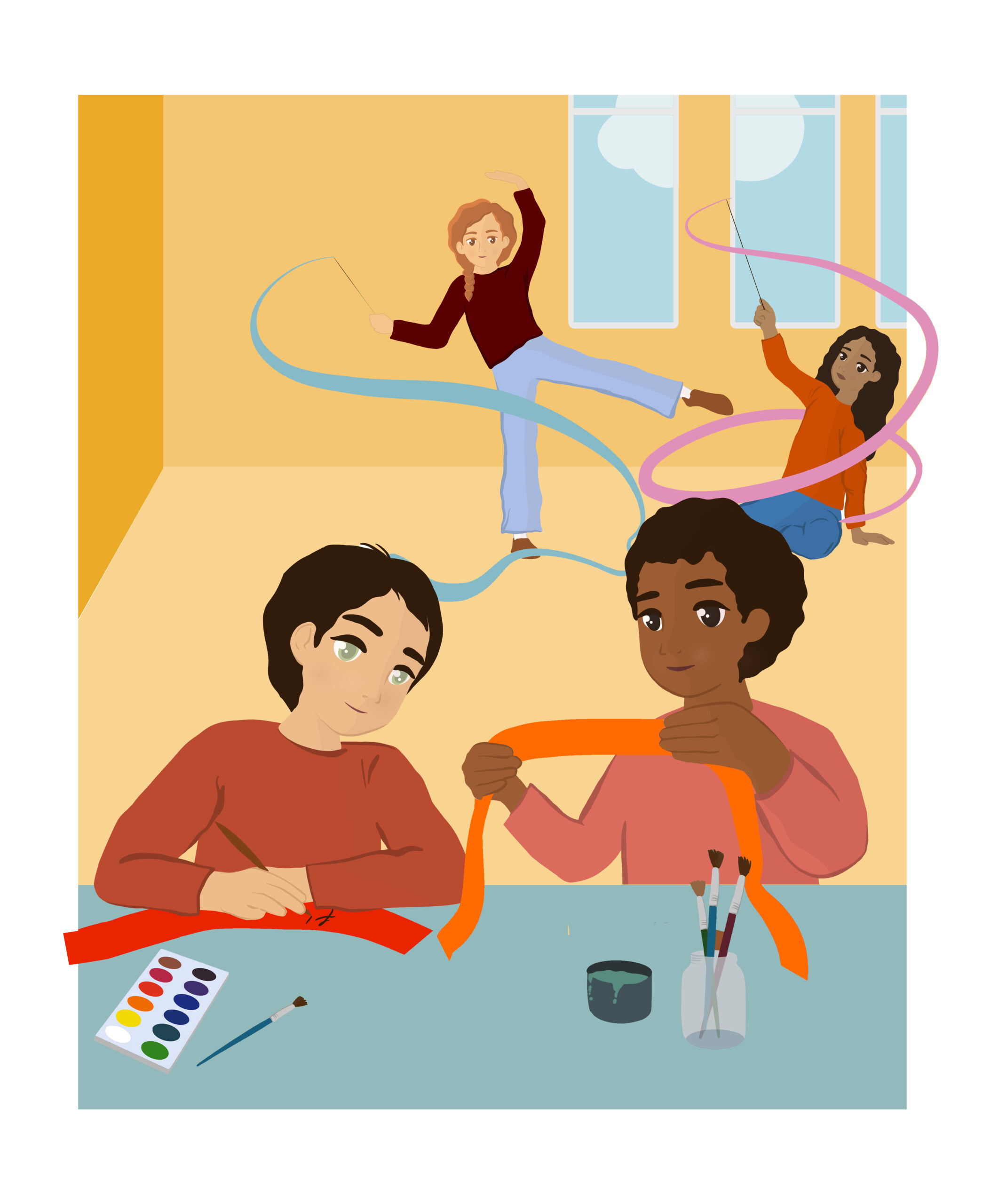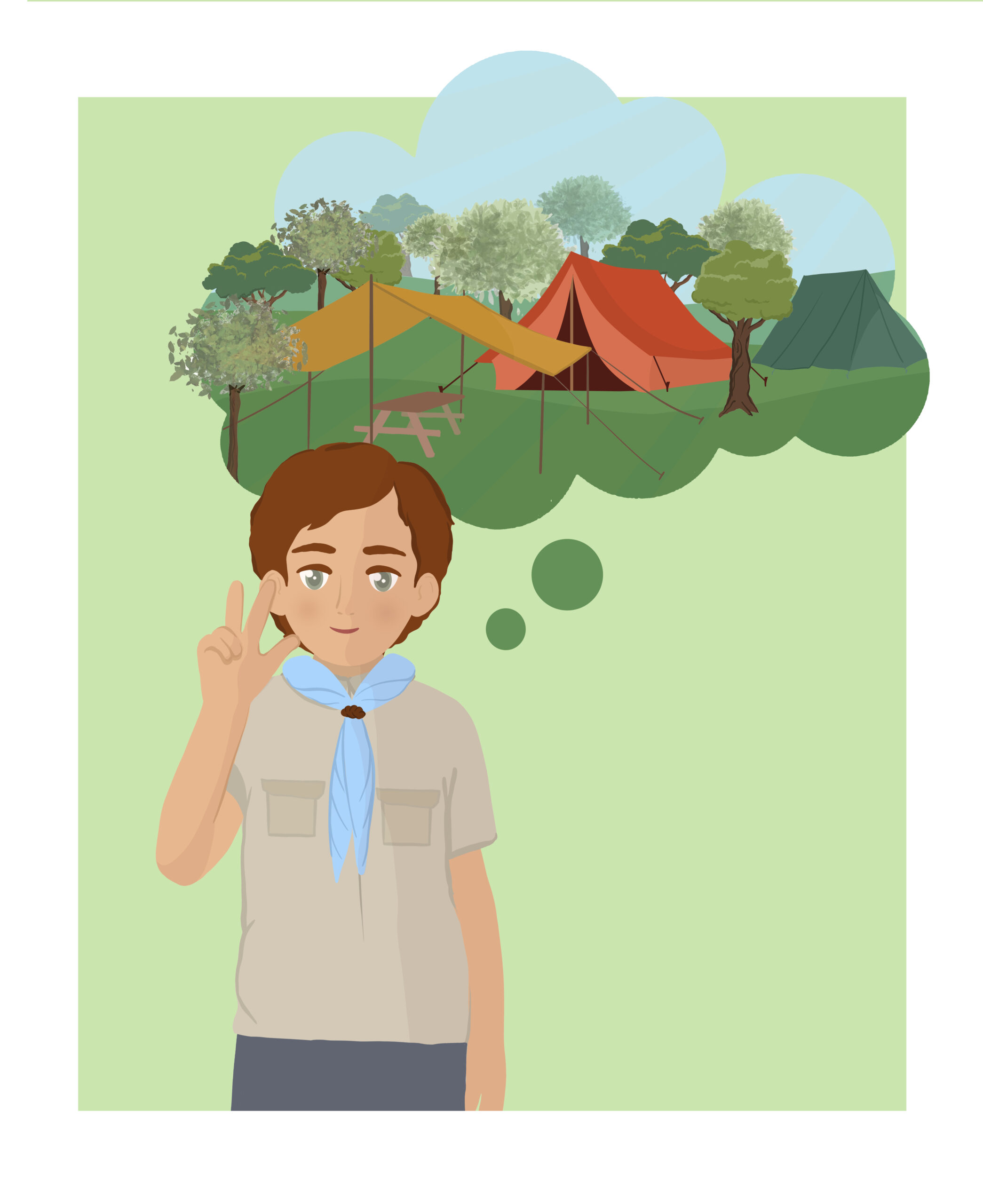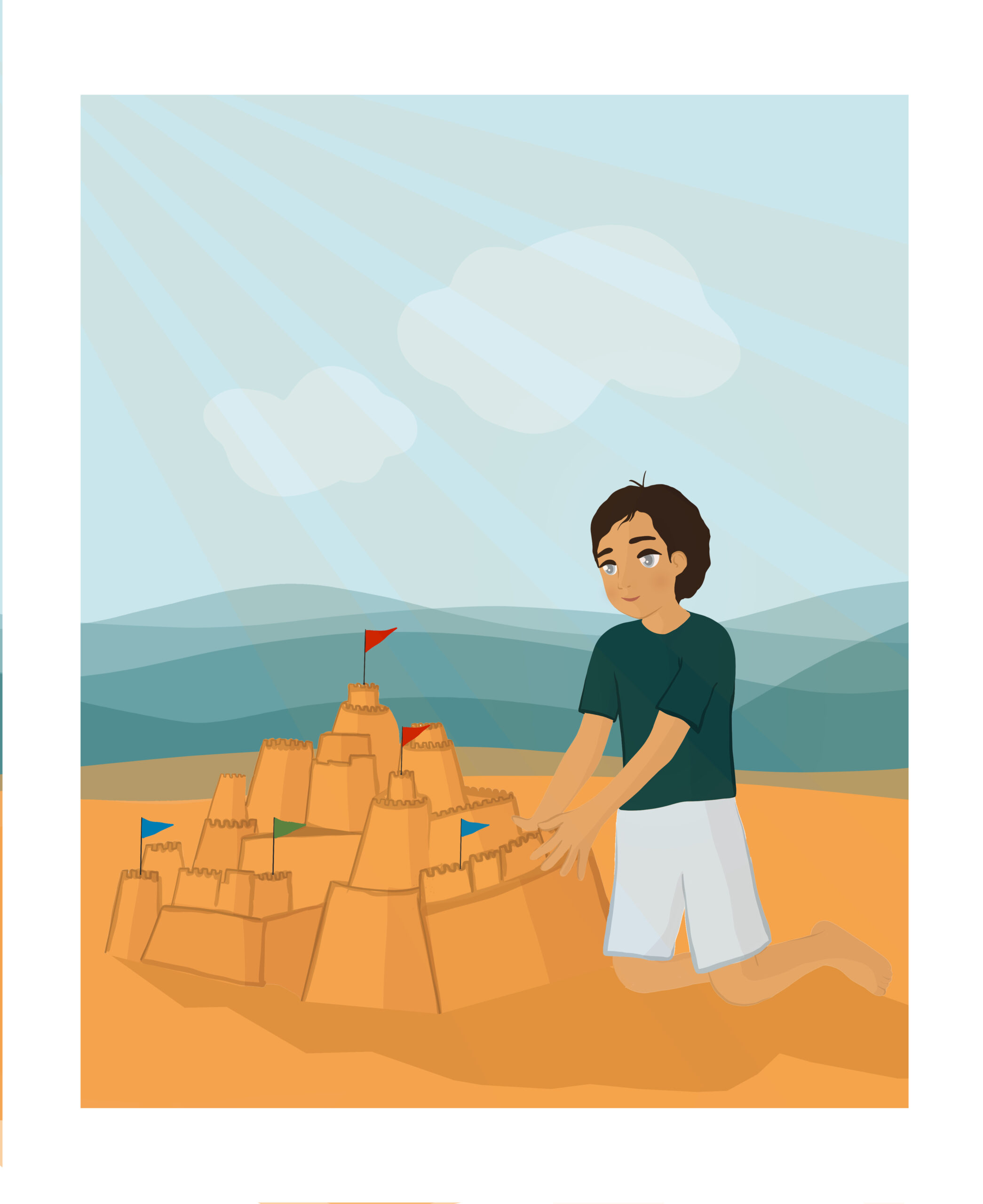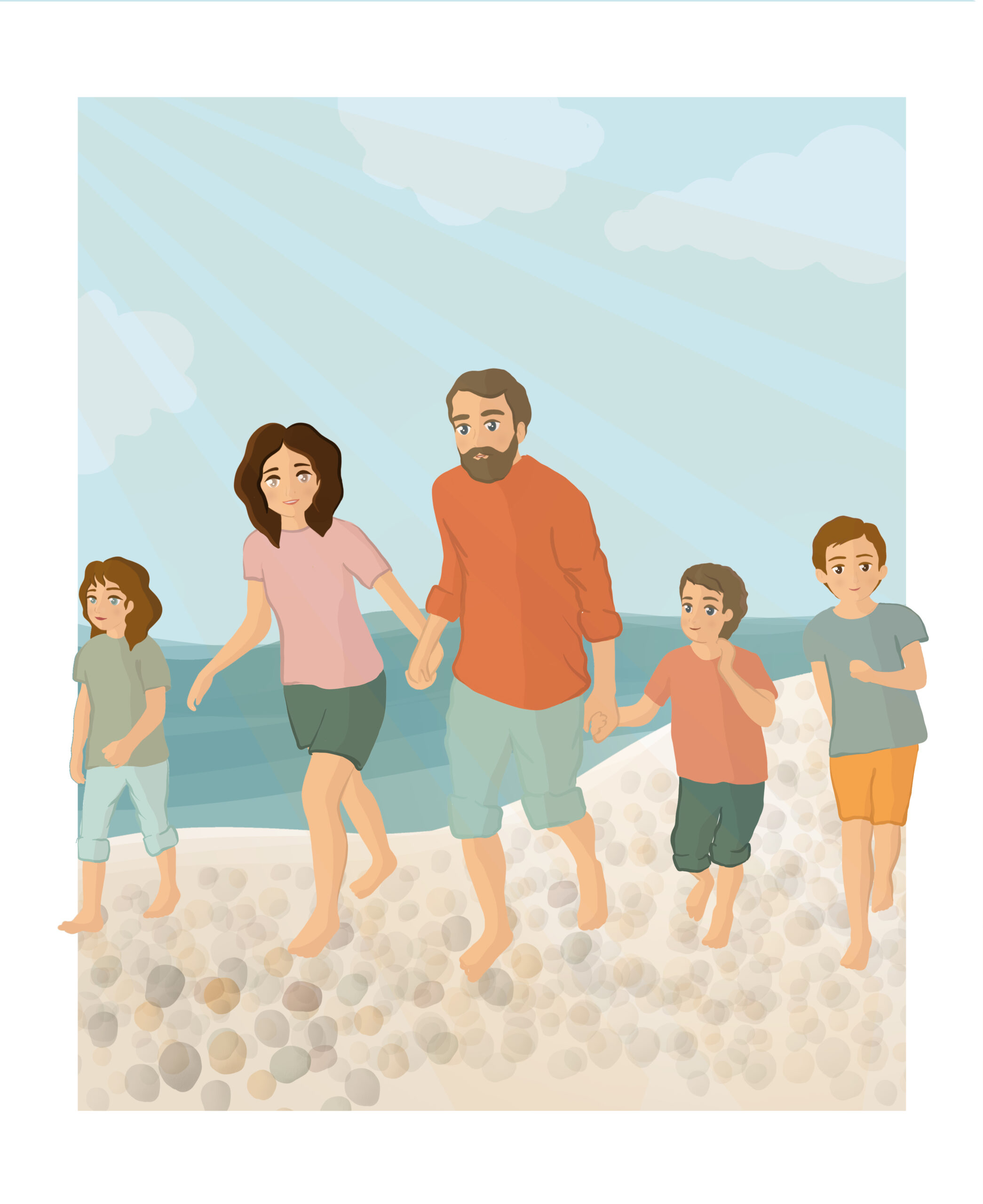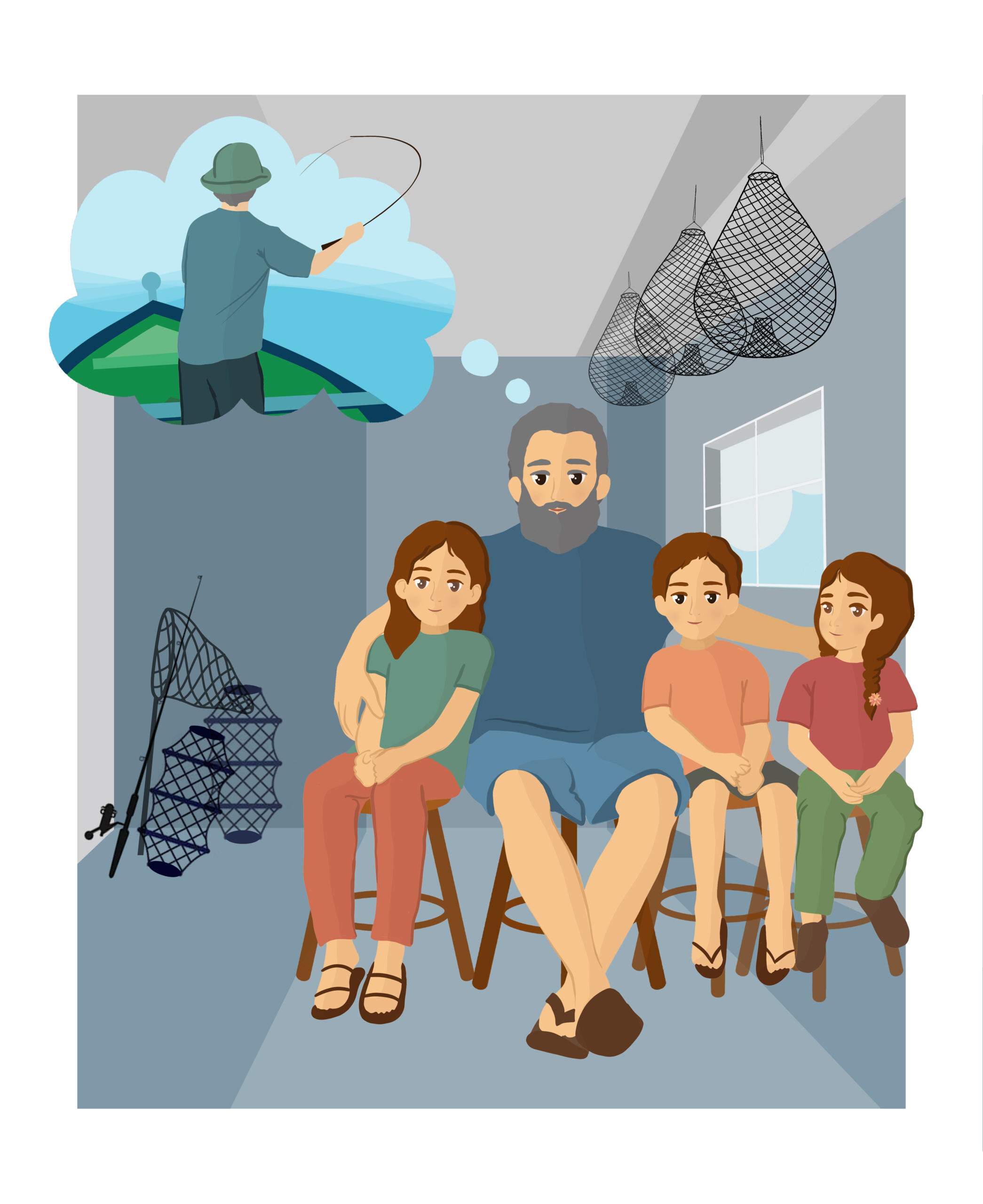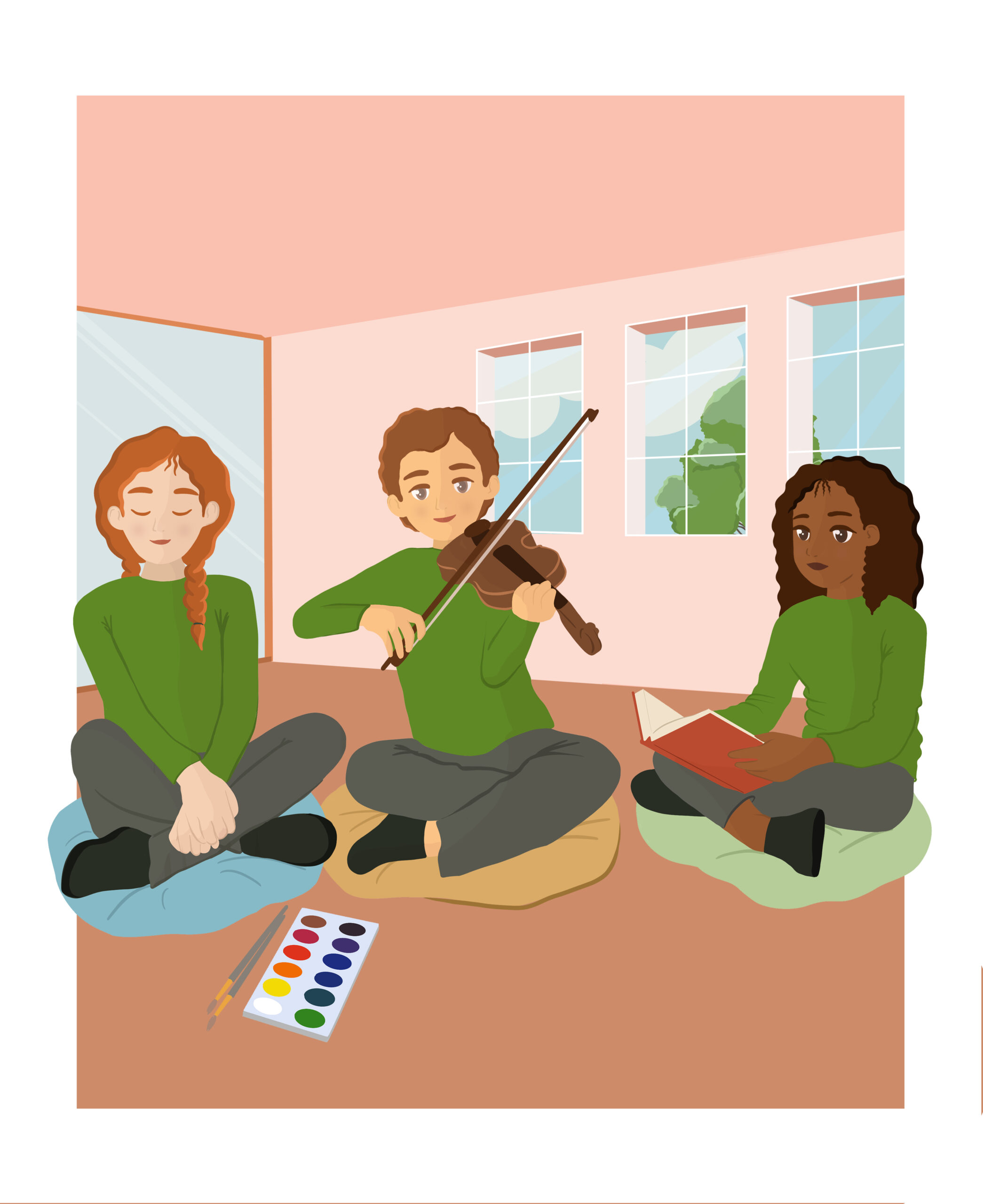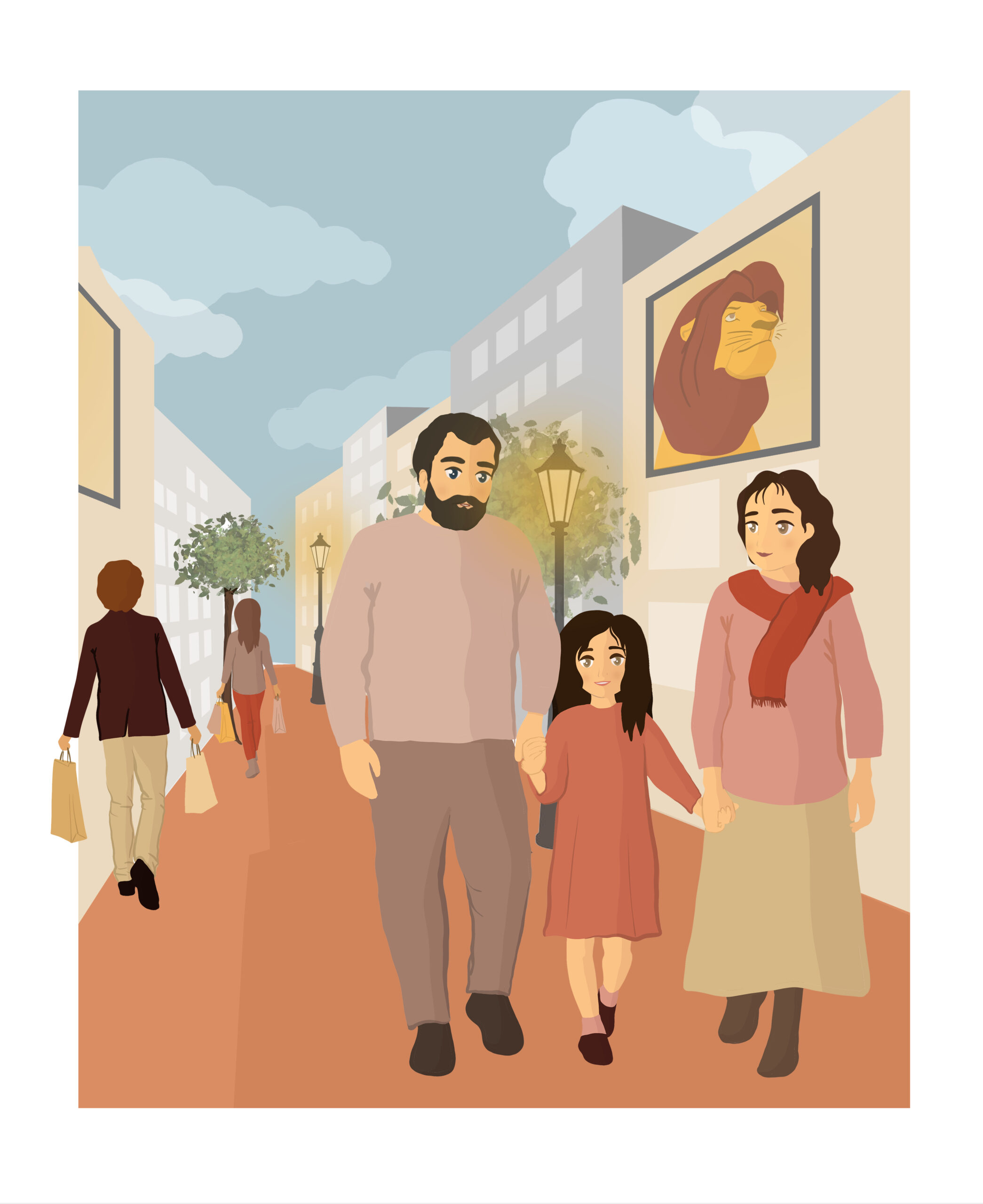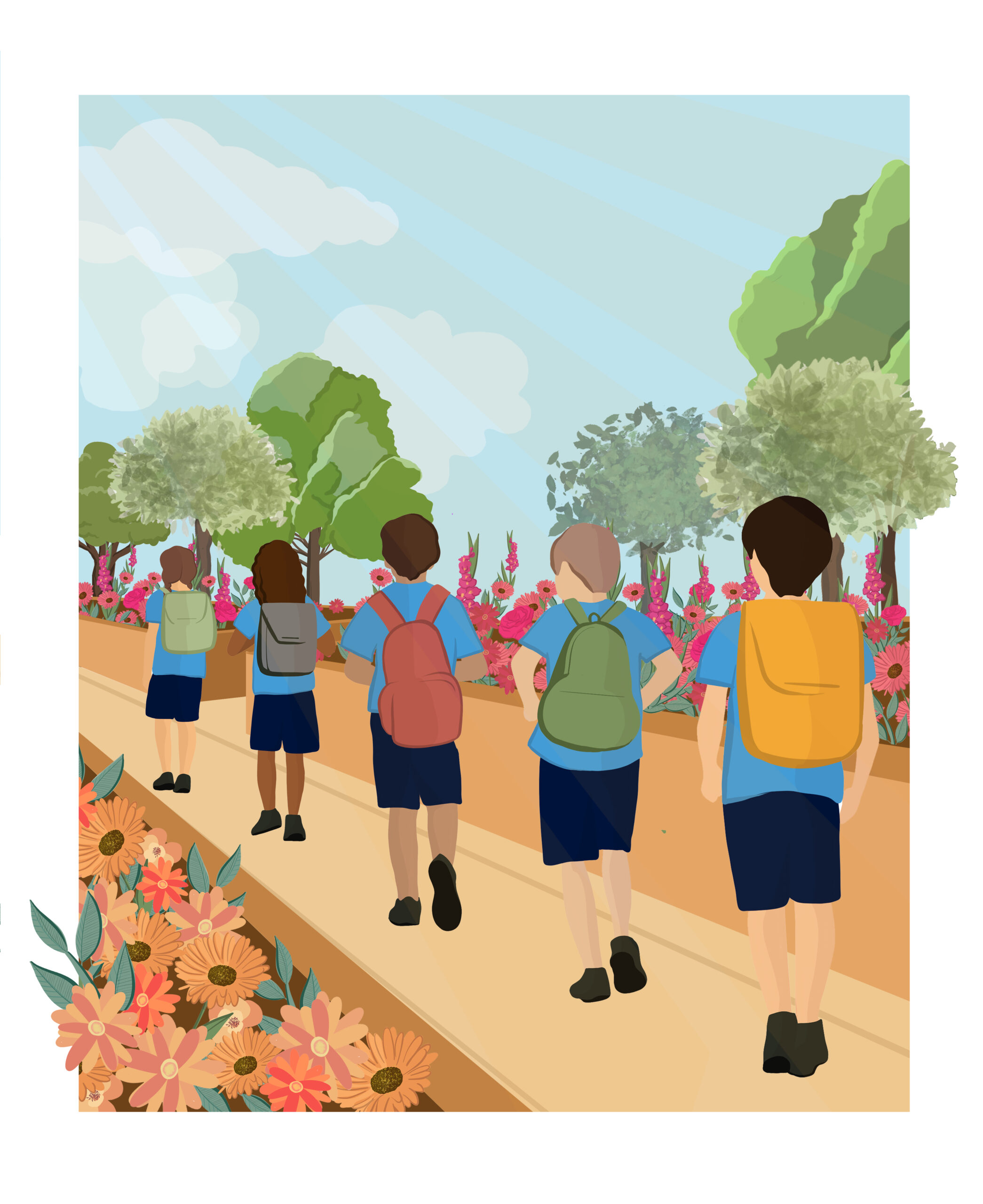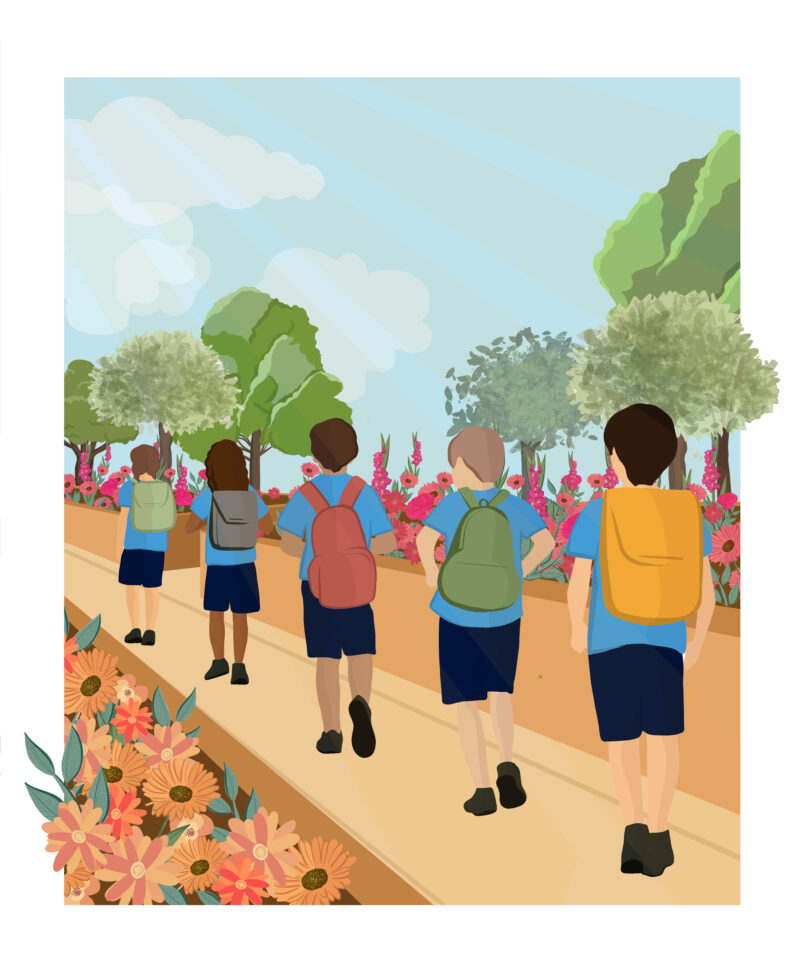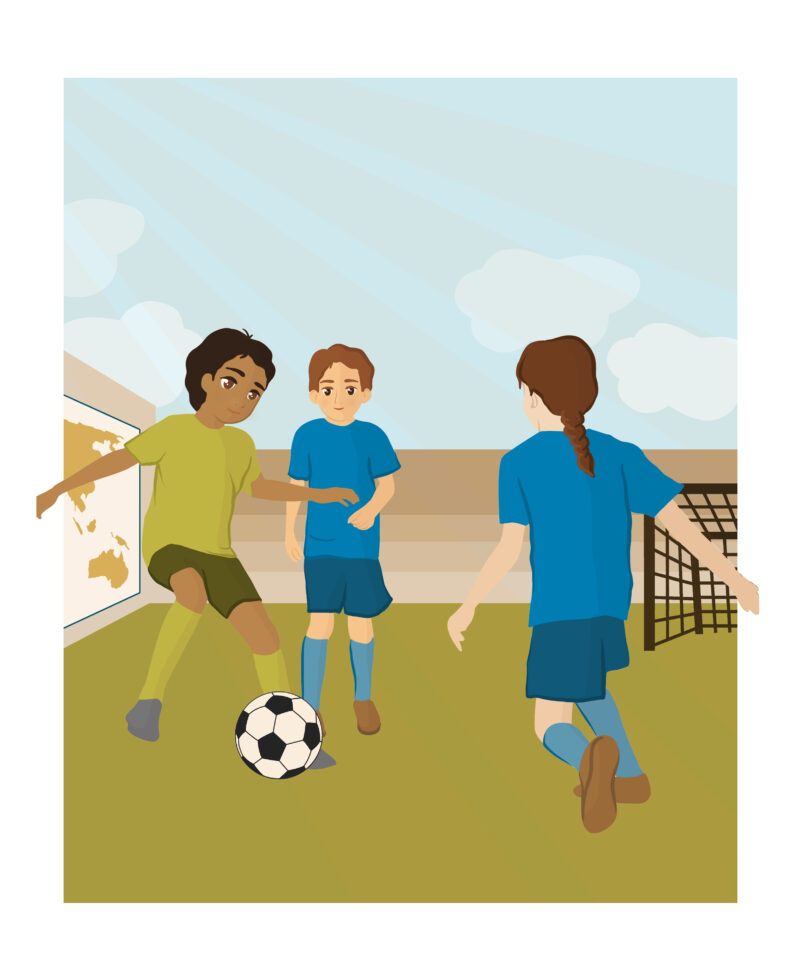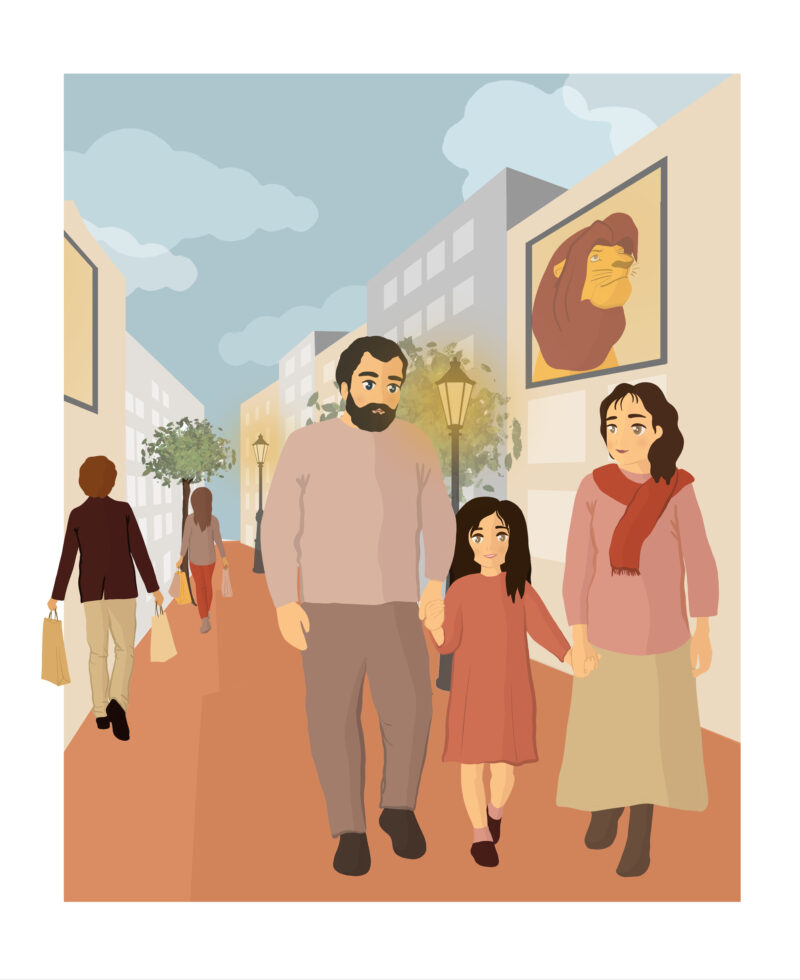The story is about a girl who is interested in many things and so she likes to ask lots of questions. In the catechesis class, she is given a coloured cardboard paper cut out in the shape of a question mark. She was invited to think about a big question she wished to ask God and write it on the question mark.
Ages
- Primary Years
- Middle Years
Topics
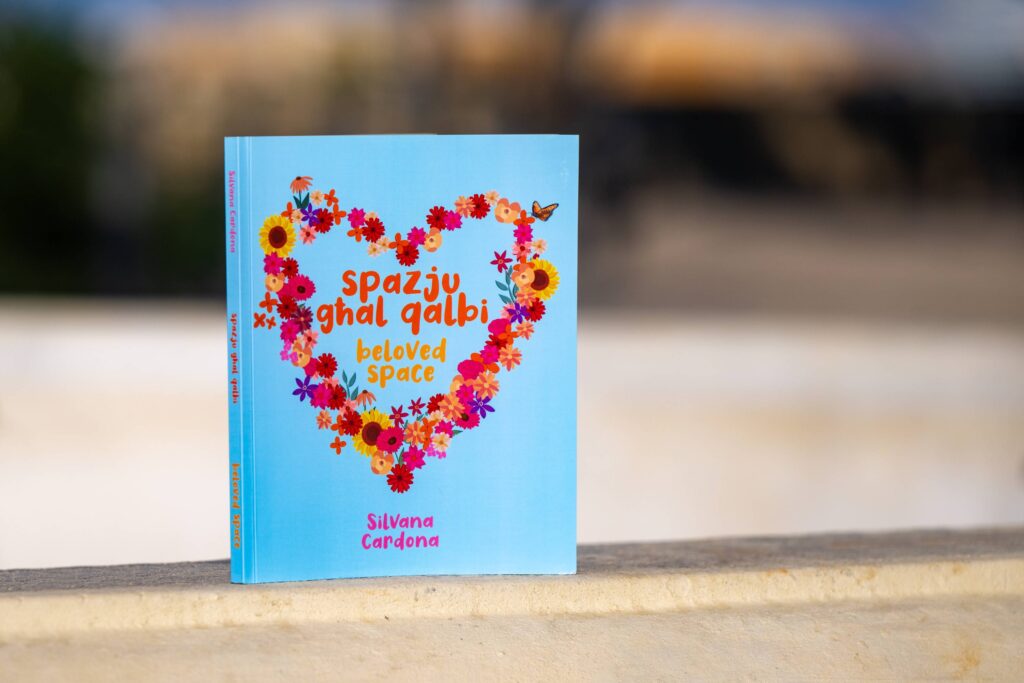
Il-Mistoqsija Oħt il-Għerf
Daniela tinteressa ruħha f’kollox u għalhekk tħobb tistaqsi ħafna mistoqsijiet. Lil missierha tħobb tistaqsih dwar l-annimali tal-ġungla, il-ħut tal-baħar, it-tjur tal-ajru u dwar kreaturi oħra speċjalment wara li jkunu raw xi dokumentarju flimkien fuq it-televixin.
Lil ommha tħobb tistaqsiha dwar il-wirt Malti wara li tkun żaret xi palazz, mużew, forti, jew xi tempju preistoriku ma’ tal-iskola.
Tħobb tkun taf dwar kulturi diversi madwar id-dinja speċjalment dawk il-kulturi ta’ tfal barranin ħbieb tagħha li għandha fil-klassi magħha. Taffaxxina ruħha tistaqsihom dwar pajjiżhom, fejn jinsab, jekk għandhomx muntanji, foresti jew xmajjar u jekk jgħixux annimali fihom bħal ċriev, ilpup u kukkudrilli. Tistaqsihom dwar l-ikel tradizzjonali kif ukoll dwar il-lingwa partikolari tagħhom, kif jiktbuha u jitkellmuha. Il-ħbieb tagħha jieħdu gost iweġbuha u juruha xi ritratt ta’ pajjiżhom.
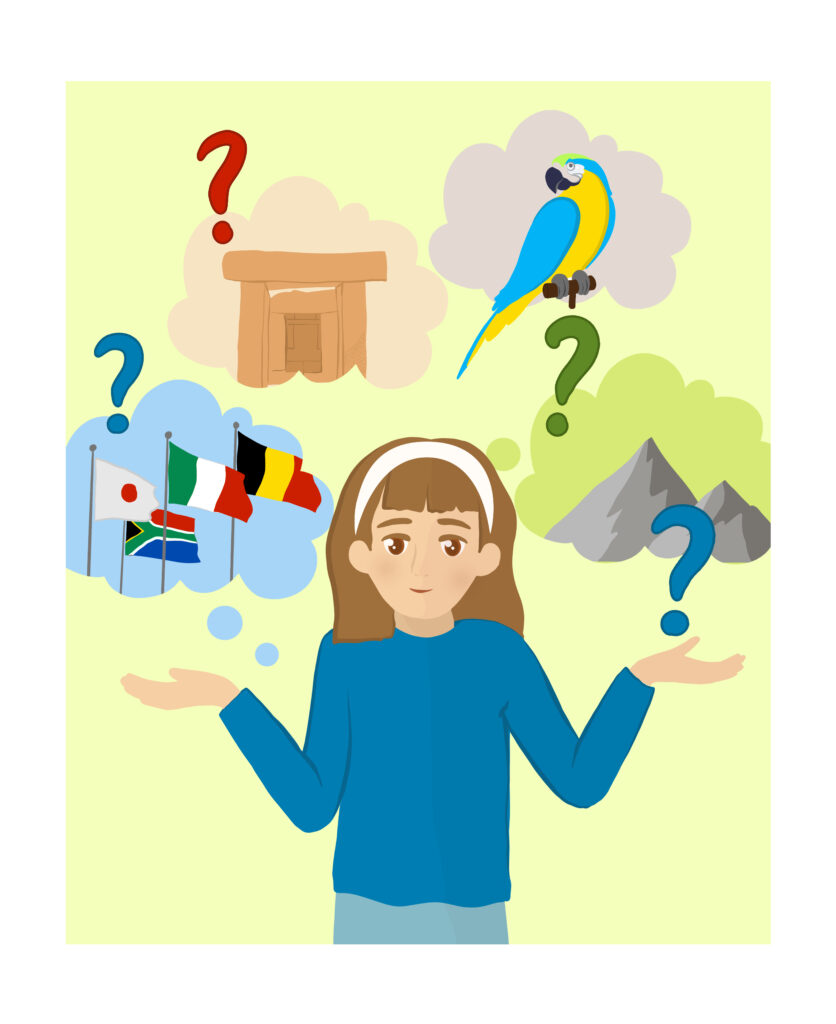
Huma jħobbu ħafna lil xulxin u jieħdu gost jistaqsu dwar id-diversità sabiħa ta’ bejniethom.
Waqt il-klassi tal-katekeżi, Daniela spiss tgħolli subagħha biex tindika li tixtieq tistaqsi xi ħaġa lill-katekist, kemm biex tkun żgura li fehmet sew u kif ukoll biex titgħallem xi ħaġa ġdida għax taf li l-mistoqsija oħt il-għerf.
Darba l-katekist ta sorpriża lil Daniela u lit-tfal. Hekk kif daħlu fil-klassi tal-katekeżi u marru biex ipoġġu bilqiegħda, sabu kartonċina kkulurita u maqtugħa f’forma ta’ mistoqsija kbira u poġġuta fuq is-siġġu tagħhom.
“Din x’ser nagħmlu biha?” bdew jistaqsu t-tfal.
U l-katekist weġibhom, “Illum ser ngħaddu ftit ħin biex flimkien nagħmlu attività riflessiva u kreattiva. Ser nibdew billi l-ewwel toħorġu mill-pokit il-lapes jew il-kulur favorit tagħkom. It-tieni, ser tinżlu bilqiegħda taħt il-mejda tagħkom b’wiċċkom lejn is-siġġu. It-tielet, ser tagħlqu għajnejkom u toqogħdu ftit fis-skiet.
“Kif tkunu b’għajnejkom magħluqa, nixtieqkom taħsbu dwar mistoqsija li tixtiequ tistaqsu lil Alla. Forsi tixtiequ tistaqsuh dwar il-mard fil-familja tagħkom, dwar il-mewt ta’ xi ħadd għażiż għalik, jew dwar ir-relazzjoni tiegħek u m’Alla. Staqsih li trid anke jekk għandek xi ħaġa oħra tinkwetak f’moħħok jew għandek qalbek imbikkma għal xi ħadd li taf li ġralu xi ħaġa. Kunu onesti magħkom infuskom u tiddejqux tistaqsu mistoqsijiet kbar lil Alla… Wara li tkunu ħsibtu din il-mistoqsija, tistgħu tiktbuha jew tpinġuha fuq il-kartonċina. Tiktbux isimkom. Fl-aħħar ser indendlu l-mistoqsijiet kollha tagħna flimkien bil-labar tal-inxir mal-ispaga li hemm għaddejja ma’ dahar is-siġġijiet.”
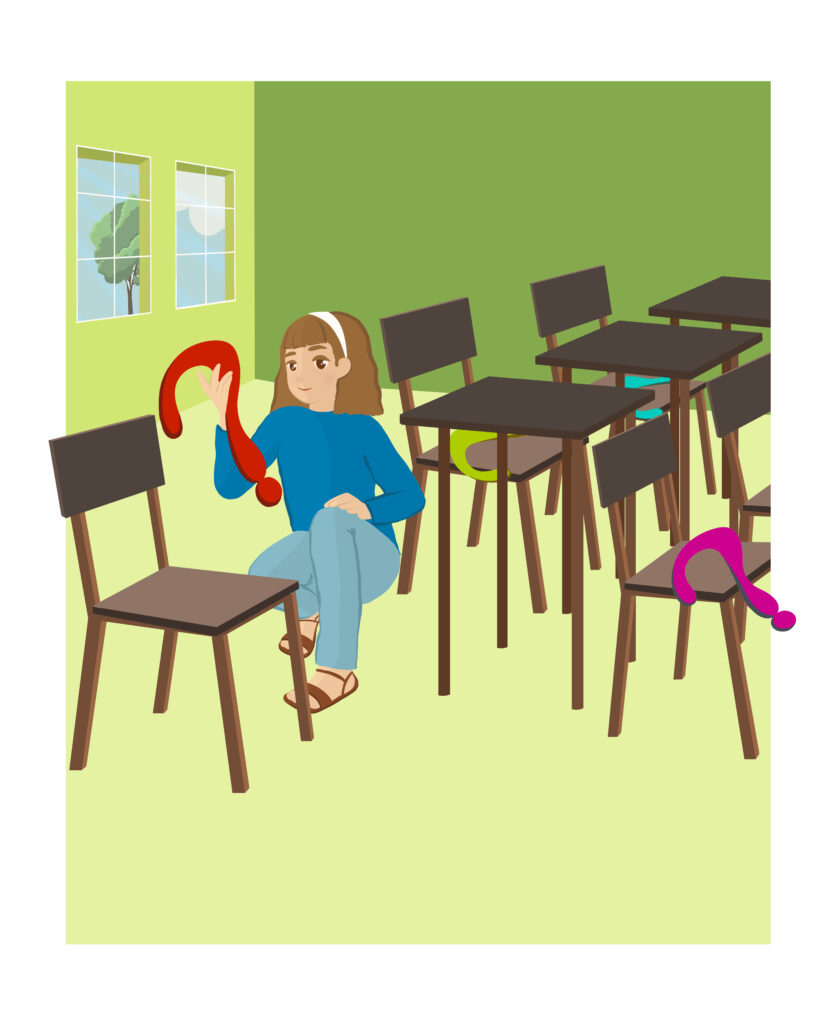
Kemm staqsew u pinġew mistoqsijiet! Fosthom staqsew,“Għala mietet in-nanna daqskemm kont inħobbha?”
“Għala lili jgħiduli li jien żejjed fil-familja u jsawtuni?”
“Għala dejjem bil-ġlied fil-familja tiegħi?”
“X’jiġri meta mmut?”
“Fejn hi l-ġenna?”
“Kif ser jirnexxili naħfer?”
“Kif irnexxielek toħloq id-dinja u l-univers?”
“Għala jrid jagħmel ħafna operazzjonijiet ħija li għadu baby?”
Is-siġġijiet kollha kellhom mistoqsijiet kbar. It-tfal indunaw li xi wħud mill-mistoqsijiet kienu komuni anke jekk kulħadd kien qed jaħseb li hu biss kellu din il-mistoqsija. Xi wħud mill-mistoqsijiet mhux dejjem ser insibu tweġiba għalihom jew huwa diffiċli biex inweġbuhom u ta’ dan ma jimpurtax. L-importanti li ma nieqfu qatt nistaqsu ħalli b’hekk inkomplu niskopru lilna nfusna u nikbru f’persuni aħjar.
U kieku inti kellek tistaqsi mistoqsija kbira lil Alla, x’tistaqsih?
Daniela is interested in so many things, and so she likes to ask lots of questions. She asks her father questions about jungle animals, fish, birds, and other living creatures, especially after seeing a documentary on television.
She asks her mother questions about Heritage Malta after visiting a palace, fort, or a prehistoric temple with her classmates.
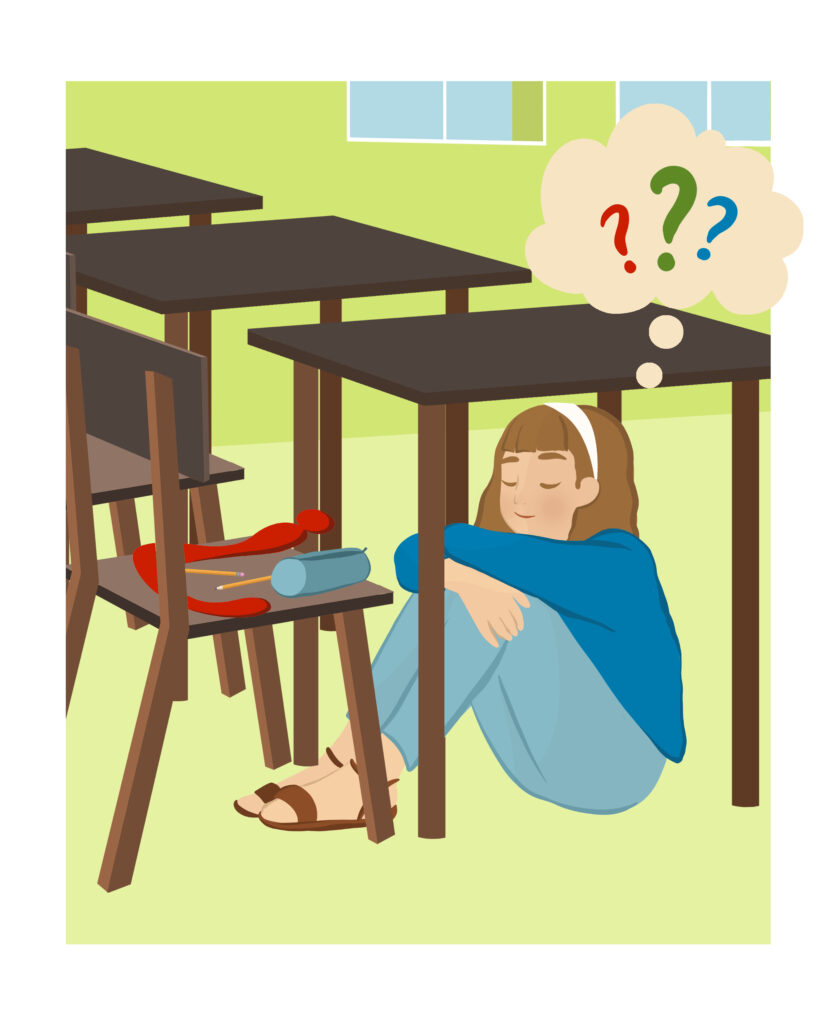
She likes to know about different cultures around the world, especially about the cultures of her foreign classmates. She is fascinated about their country, where it is located, whether there are any mountains, forests or rivers and any animals such as deer, wolves, and crocodiles. She asks them about their respective traditional food, about their language, about how they write it and speak it. Her classmates eagerly answer her questions and show her photographs of their country.
Their friendship is great, and they like to ask each other about this beautiful diversity.
During the class of catechesis, Daniela often raises her hand to indicate that she wants to ask the catechist a question, either to make sure she understood well or to learn something new because she knows that asking questions leads to wisdom.
Once, the catechist surprised Daniela and the children. As they entered the class of catechesis and went to sit down on the chair, they found a coloured cardboard paper cut out in the form of a big question mark.
“What are we going to do with this?” asked the children.
“First, you are going to take out a pencil or your favourite colour from your pencil case. Secondly, you are going to sit down under your table facing your chair. Thirdly, you are going to close your eyes and be still for some moments.
While your eyes are closed, think about a question that you wish to ask God. It could be a question about sickness in your family, about the death of someone dear to you, or about your relationship with God Himself. Ask Him whatever you like, even if you have something worrying in your mind or your heart is broken about someone you know and something tragic happened to them. Be honest with yourselves and do not hesitate to ask big questions to God. Then you can write or draw your question on the paper with the question mark. Do not write your name on it. Finally, you are going to hang all your questions with the pegs onto the string which is tied around the chairs .”
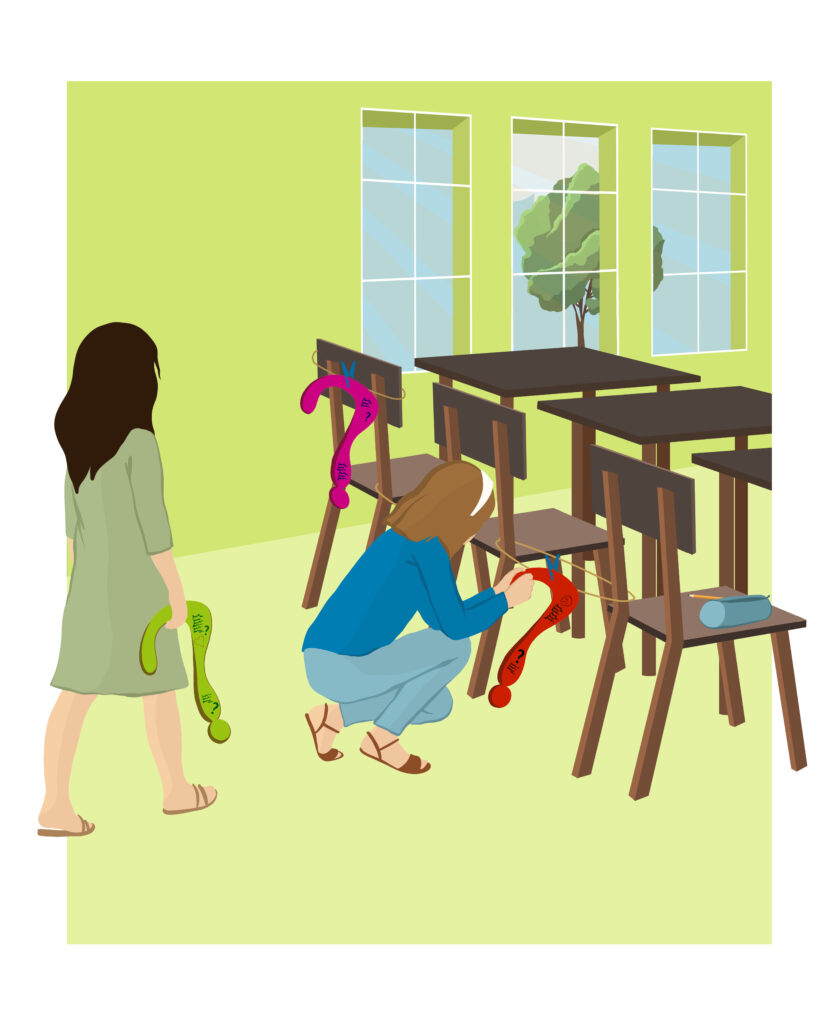
The children asked and drew several questions such as:
- “Why did my grandmother die? I loved her so much!”
- “Why am I unwanted in my family and they hit me?”
- “What happens when I die?”
- “Where is heaven?”
- “How is it possible for me to forgive others?”
- “God, where do you live?”
- “How is it that you created the world and the universe?”
- “Why does my baby brother have multiple surgeries?”
All the chairs had big questions hung onto them. The children noticed that some of the questions repeated, even if every one of them thought that it was only him or her who asked that question.
Some of the questions did not have a particular answer or were difficult to answer and this did not matter.
The important thing is that we should never stop asking questions so that we will continue to know better our inner selves and grow into better persons.
And if you were to ask a big question to God, what would you ask Him?
Fare domande porta alla sapienza
Daniela s’interessa di molte cose, perciò le piace fare parecchie domande. A suo padre chiede informazione sugli animali della giungla, pesci, uccelli e altre creature viventi, specialmente dopo aver visto un documentario alla televisione.

Domanda a sua madre informazione su Heritage Malta dopo aver visitato, insieme ai suoi compagni di classe, un palazzo, un forte o un tempio preistorico.
Le piace essere informata delle diverse culture intorno al mondo, specialmente di quelle dei suoi compagni di classe stranieri. Tutto quello che ha a che fare con i loro Peasi – posizione geografica, eventuale esistenza di montagne, foreste, fiumi e altri animali come cervi, lupi e coccodrilli, la affascina. È curiosa del loro cibo tradizionale rispettivo, delle loro lingue, del modo in cui le scrivono e le parlano. Perciò, quando chiede informazione al riguardo ai suoi compagni di classe, questi rispondono alle sue domande con vivo interesse e le mostrano foto del loro Paese.
La loro amicizia è profonda e piace loro chiedersi a vicenda di questa diversità meravigliosa.
Durante la lezione di catechismo, Daniela spesso alza la mano per indicare al catechista che vuol fare qualche domanda, vuoi per assicurarsi di aver compreso bene vuoi perché sa che fare domande porta alla sapienza.
Una volta, il catechista sorprese Daniela e i ragazzi. Entrati nell’aula, mentre si mettevano a sedersi sulla sedia, trovarono un foglio di cartone colorato ritagliato in forma di un punto interrogativo.
“Che cosa facciamo di questo?” chiesero i ragazzi.
“Primo, tirate una matita o il tuo colore favorito dal vostro portamatite. Secondo, mettetevi seduti sotto il vostro tavolo di fronte alla sedia. Terzo, chiudete gli occhi e state immobili per alcuni momenti.
Mentre gli occhi sono chiusi, pensate a una domanda che vorreste fare a Dio. Può essere una domanda su una malattia nella vostra famiglia, sulla morte di qualcuno caro a voi, o sulla vostra relazione con Dio stesso. Chiedetegli qualunque cosa vi piaccia, anche se qualcosa vi preoccupa nella mente o se il nostro cuore è rattristato per via di qualcuno che conosci e che gli è successo qualcosa di tragico. Siate onesti con voi stessi e non esitate di fare domande importanti a Dio. Poi potete scrivere o disegnare la vostra domanda sul foglio con il punto interrogativo. Non scrivete il vostro nome su di esso. Alla fine, appendete tutte le vostre domande con le mollette su una corda attaccata attorno alle sedie.”

I ragazzi chiesero e disegnarono parecchie domande come:
- “Perché è morta mia nonna? L’amavo tanto!”
- “Perché sono rifiutato nella mia famiglia e mi percuotono?”
- “Cosa succede quando muoio?”
- “Dov’è il cielo?”
- “Come m’è possibile perdonare altri?”
- “Dio, dove vivi?”
- “Com’è che hai creato il mondo e l’universo?”
- “Perché mio fratello, ancora bambino, subisce tanti interventi?”
Tutte le sedie avevano domande importanti appese ad esse. I ragazzi notarono che alcune domande erano ripetute, anche se ciascuno di loro pensava che fosse solo lui o lei che avesse fatto quella domanda.
Alcune delle domande non avevano una risposta specifica o era difficile fornirne una risposta, e questo non importava.
La cosa importante è che non dobbiamo cessare dal fare domande, e in questo modo continueremo a conoscere meglio il proprio io per diventare persone migliori.
E se voi doveste fare una domanda importante a Dio, che cosa gli chidereste?
Resources related to this story
We want to get to know you. To be able to bookmark your favourite content, please log in or sign up below.
User Sign Up
Discover more resources


